Construction Materials Prices in Turkey
Turkey has a strategic and very good geographical location and is considered a crossroads of Northwest Asia and Europe. Building materials are used in the construction and production of various structures. Turkey's exports in 2018 in the competition compared to a year ago had a growth of 10.22 percent. Fine sand is usually easily found on the beach and in the river. One of the most common items that travelers bring from Turkey will be souvenirs or gifts. Plaster is a soft, white powder obtained from gypsum
Add your import and export orders to this list
Warning: Undefined variable $formTitle in /home/anbar/domains/anbar.asia/anbar/inc/html/desktop/orderform.php on line 10
Warning: Undefined variable $marketName in /home/anbar/domains/anbar.asia/anbar/inc/html/desktop/orderform.php on line 12
Warning: Undefined variable $location in /home/anbar/domains/anbar.asia/anbar/inc/html/desktop/orderform.php on line 12
If you want to trade in the , please join in Anbar Asia. Your order will be shown here, so the traders of contact you

Ataturk International Airport is the 11th busiest airport in the world and many Turkish airports are in very good condition and the number of passengers is very high. The construction industry is one of the most prosperous industries and businesses in the Middle East. Turkey exports the most to EU countries and the use of Turkish products is very common among the countries of the world. Soil is a combination of excellent minerals and minerals created by weathering and rock destruction
- Turkey Cement Market
- Turkey Brick Market
- Turkey Sand Market
- Turkey lime Market
- Turkey paint Market
- Turkey wood and timber Market
- Turkey Glass Market
- Turkey Clay Market
- Turkey Ceramic Tile Market
- Turkey Concrete blocks Market
- Turkey Plaster Market
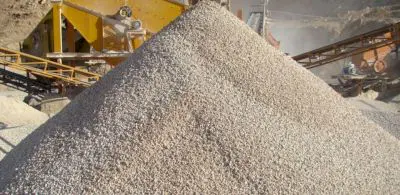
Gravel smaller than sand is called fine sand. Fine sand is usually easily found on the beach and in the river. In civil engineering, according to the classification, ASTM called fine sand for gravels smaller than 4.75 mm and coarser than 0.075 mm of.
Read More ...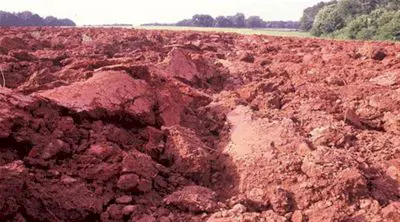
Clay is one of the types of sticky soils that is used in construction. This soil is the result of erosion of metamorphic and igneous rocks and because of its very fine grains, it is also called colloid. The important point in using this material is to choose a quality sample of it. Clay is the best material that can be used to control the temperature of the building.
Read More ...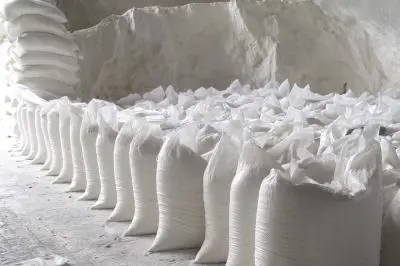
Whitewash plaster: The price of whitewash plaster is very reasonable. This plaster is used to cover the surface and whitewash the walls, and its color is completely white.
Read More ...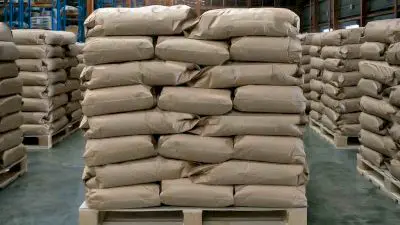
The combination of cement with water creates a hard material called concrete, which plays an important role in strengthening various structures.
Read More ...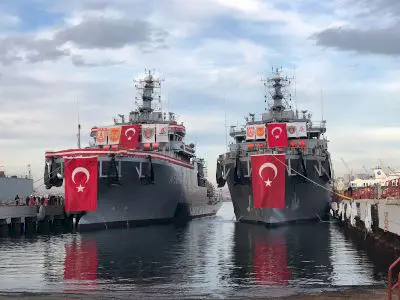
2. EnglandOne of the largest products in the top of Turkish exports to the UK is automobiles. Of course, exports to the UK do not only include cars, but also home appliances, furniture, textiles, and clothing. Consider that Turkey could export up to $ 11 billion this year.
Read More ...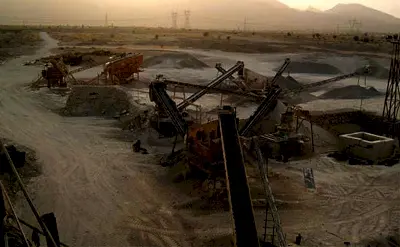
Sand is produced by crushing rocks. Coarse stones are produced from the crushing and separation of natural stones, and finer sands, in addition to stones, also contain shells and corals. In civil engineering, aggregates smaller than 75 mm and coarser than 4.75 are called sand. Sands are divided into two categories according to the source and type of grains used in construction.
Read More ...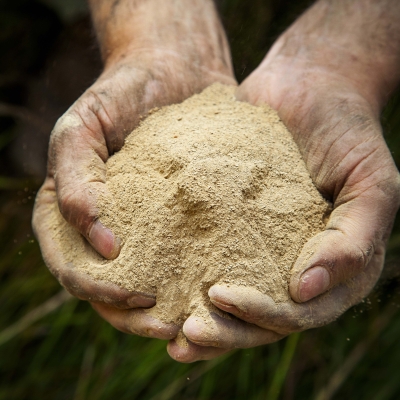
Clay soil is a term that refers to sedimentary rocks containing a significant amount of clay minerals, such as rock. Iran is one of the special regions of the world that has many resources; The export capacity of clay from the waters of Chabahar port to Pakistan shows that Iran has the richest resources.
Read More ... This fair is organized under supervision of TOBB (The Union of Chambers and Commodity Exchanges of Turkey) in accordance with the law no. The Turkey Construction Market is segmented by Sector (Residential, Commercial, Industrial, Infrastructure Energy, and Utilities). The Turkey Construction Market is estimated to grow at a CAGR of approximately 5% during the forecast period, driven by the government’s plans to upgrade transport and energy However, Turkey’s construction industry is expected to recover from the current crisis and slump to reach USD 230 Billion during the forecast period. The total construction project pipeline in Turkey stands at USD 508 billion. However, the ongoing currency crisis in the country, coupled with high unemployment, are expected to have a negative impact on Turkey’s economy, which could have an adverse impact on construction spending. Disputes between the US and Turkey are also expected to hold back the country’s economic growth over the forecast period. In October 2019, the US imposed a 50% trade tariff on Turkey’s steel, and halted trade negotiation talks with the country. The Turkey construction market covers the growing construction projects in different sectors, like commercial construction, residential construction, industrial construction, infrastructure construction), and energy and utility construction. Along with the scope of the report also it analyses the key players and the competitive landscape in the Turkey Construction Market. The construction sector in Turkey is expected to grow during the forecast period, main contributors being ongoing road and railway infrastructure projects, residential housing, office, and warehouse construction. The construction sector in Turkey is expected to grow during the forecast period driven by the population growth and which in turn drives the residential construction. The population in Turkey reached 84 million in the year 2019, an increase of 4% from the year 2016. During the first five months in 2020, the number of residential buildings sold in Turkey amounted to 434,757 out of which, Istanbul has the largest share with 48,752 (11. In the capital city Ankara, the number of residential buildings during the period observed a share of 5. The residential and foreign buyers investing in innovative and modern residential apartments in Turkey, ongoing promotional campaigns by banks, and easing of home loan interest rates are some of the factors contributing to the increasing residential flat sales in Turkey. The report covers the major players operating in the Turkey Construction Market. The Turkey market is highly competitive with several players competing for the major share. With Green buildings being projected as one of the key trends in the Turkey construction industry, companies are largely investing in the R&D of materials to be used and this can be an opportunity for the new market entrants. 5 Spotlight on Prefabricated buildings market in Turkey. 8 Insights on Key of Construction Materials. 2 Key Production , & import statistics of construction Materials. The Turkey Construction Market market is studied from 2016 - 2026. The Turkey Construction Market is growing at a CAGR of 5% over the next 5 years. Renaissance Construction, Polimeks Construction, Alarko Contracting Group, TAAV Construction, Limak Insaat are the major companies operating in Turkey Construction Market.
Read More ...
Istanbul is home to one of Turkey's most recognisable UNESCO World Heritage sites, the Sultan Ahmed Mosque (also known as the Blue Mosque). Figure 1: The GDP (current US$ - US$bn), GDP growth rate (%), GNI/capita (US$1000) and cement production (Mt0 in Turkey in 2000 - 2014. The plant has 200 years of raw material reserves, the largest and most homogeneous in Turkey. Turkey, which has an emerging market economy as defined by the International Monetary Fund (IMF), had a GDP (purchasing power parity - PPP) that rose by 4% year-on-year to US$1. Turkey's labour force was 27. Turkey is a net importer of goods. Although Turkey has a strong industry and production base, it relies on imported oil and gas for 97% of its energy needs. 1 Several gas pipelines projects to transport central Asian gas to Europe through Turkey are ongoing, which should ultimately increase supply confidence. Turkey has 50 active integrated cement plants and 84. Turkey also has 17 active grinding plants (excluding the soon-to-be integrated cement plant) and >8. The Turkish Cement Manufacturers' Association (TCMA) claims that Turkey has significantly higher cement and clinker production capacities than Global Cement can verify (Table 1). 56Mt of cement was produced in December 2013, Turkey's cement production for the entirety of 2014 is unlikely to have exceeded 70Mt. 3 Turkey lost out on being the fourth-largest cement producer in 2014 and now shares that position with Iran, which, according to the USGS, also produced 75Mt of cement in 2014. Turkey and Iran follow China (2. Brazil, which produced 72Mt of cement in 2014, is closing in on Turkey's production. Turkey is also one of the world's most significant producers of white cement. Distributors are Turkey's second-largest cement buyer. In contrast with typical developing countries, Turkey's domestic cement sales were primarily in bulk as opposed to bagged. Figure 1 - Table: Cement production (Mt) in Turkey in 2000 - 2014. Table 1: Cement and clinker production volumes in Turkey in January - November 2014. Table 2: Turkey's domestic and export sales by cement type in 2013. Above - Figure 2: The integrated cement plants in Turkey in 2015, colour-coded by installed integrated cement production capacity in each Turkish region. The majority of cement producers in Turkey are Turkish companies. Multinational producers like Votorantim Çimento, Lafarge, Cementir Holding and Vicat are also active in Turkey's cement market. Oyak Group is Turkey's largest cement producer by installed integrated cement production capacity (Table 3). 63Mt/yr of cement production capacity, is Turkey's second-largest cement producer. As for Turkey's other large producers, Akçansa has made significant recent investments in alternative fuels. Çimsa Çimento is the third-largest cement producer in Turkey. Çimsa also has one 530,000t/yr capacity grinding plant in Ankara. Nuh Çimento is the fourth-largest producer in Turkey, with just one integrated cement plant that has 5. Limak Batı Çimento is Turkey's fifth-largest cement producer. Table 3: Turkey's largest cement producers in 2015 by installed active integrated cement production capacity. In recent months many announcements have been made of upgrades and expansions, and even one relocation, within Turkey's cement sector. In December 2013, Oyak's Bolu Çimento ordered three vertical roller mills from Gebr Pfeiffer for a new production line at its grinding plant in Kazan, Ankara. Çimko is a joint venture between Turkey's Sanko Group and Italy's Cementerie Aldo Barbetti. The two companies held a signing ceremony in Ankara for the establishment of a joint venture company called Limak Afrika SA. Cementir also planned to boost its waste management operations in Europe, beyond the markets in Turkey and northern England where it is currently focused. 89bn agreement to acquire a large portion of the LafargeHolcim assets in Europe, Canada, Brazil and the Philippines, other assets may still be available for purchase by Turkey's producers. Denizli produces about 31% of western Turkey's total clinker output. According to the IMF, Turkey's GDP will grow by 3% in 2015, following 4% growth in 2013 and 3. Al-Monitor reported that although 2014 saw Turkey's economy fall short of most of its targets, 2015 would be positive for Turkey thanks to falling oil and natural gas prices. A large number of projects are expected to continue to drive Turkey's construction and cement industries in the near future. In addition, Turkey plans to construct the world's largest airport in Istanbul for around US$5. The first stage is scheduled to be completed in 2017 and is expected to require a significant quantity of construction materials, including cement. Turkey's cement producers are well-prepared for growing cement demand amid a strong construction sector. An increasing focus on cement production can be expected, judging from the TCMA's participation in Turkey's Waste Management Symposium on 29 January 2015. In summary, Turkey's cement sector is likely to grow at a steady pace for the foreseeable future thanks to healthy demand by the domestic and export markets. Table 4: The GDP growth rates in 2013 and 2014 and forecasts for 2015 in Turkey, emerging and developing Europe and the world.
Read More ...
Construction is one of the key sectors in Turkey, being one of the main drivers of private and public investments in Turkey. Because of economic reforms, Turkey has established a large and strong construction industry in a short time. Turkey is a major producer of basic construction materials such as cement, building steel, timber, bricks, PVC, polyethylene, glass, ceramic tiles and sanitary ware, being especially strong and competitive in producing construction steel, cement, ceramic and glass products. CONTRUCTION and SteelTurkey has a huge iron and steel industry, which produces major inputs for the construction industry. Turkey’s steel production rose 31. Turkey produces different types of iron and steel pipes / pipe fittings. Turkey’s iron and steel pipes / pipe fittings exports reached US$ 1. which is the basic construction material, is produced by 67 cement plants in Turkey. In 2015 Turkey’s cement export ranked fifth in the world. total probable marble reserves are 5. Turkey has a 33% share in the world's marble reserves. In 2015, the main countries, which Turkey exported, processed marble to, were USA, Saudi Arabia, Iraq, UAE and France. are amongst Turkey’s oldest and best-known products. Turkey’s share in world ceramic tiles production rose to 3. Turkey ranks first in Europe in the production of ceramic sanitary ware, as well. glass industry is one of the most important and highly developed industries in Turkey. Building materials and suppliers in TurkeyThe domestic production of basic plastic raw materials has naturally resulted in a strong plastic processing industry in Turkey. and to the developments in the construction, automotive and marine industries of Turkey, the paints and coatings industry has also developed and has become one of the most dynamic sectors of the Turkish Industry. The number of firms, which have ISO 9000 certification, is rapidly increasing in Turkey. materials and suppliers in Turkey exported construction materials worth US$ 16. Turkish building materials are exhibited in international and local fairs organized in Turkey. Construction is one of the key sectors in Turkey, being one of the main drivers of private and public investments in Turkey. Because of economic reforms, Turkey has established a large and strong construction industry in a short time. Turkey is a major producer of basic construction materials such as cement, building steel, timber, bricks, PVC, polyethylene, glass, ceramic tiles and sanitary ware, being especially strong and competitive in producing construction steel, cement, ceramic and glass products. Turkey has a huge iron and steel industry, which produces major inputs for the construction industry. Turkey’s steel production rose 31. Turkey produces different types of iron and steel pipes / pipe fittings. Turkey’s iron and steel pipes / pipe fittings exports reached US$ 1. Cement, which is the basic construction material, is produced by 67 cement plants in Turkey. In 2015 Turkey’s cement export ranked fifth in the world. Turkey’s total probable marble reserves are 5. Turkey has a 33% share in the world's marble reserves. In 2015, the main countries, which Turkey exported, processed marble to, were USA, Saudi Arabia, Iraq, UAE and France. Ceramics are amongst Turkey’s oldest and best-known products. Turkey’s share in world ceramic tiles production rose to 3. Turkey ranks first in Europe in the production of ceramic sanitary ware, as well. The glass industry is one of the most important and highly developed industries in Turkey. Plastic-based Building materials and suppliers in Turkey . The domestic production of basic plastic raw materials has naturally resulted in a strong plastic processing industry in Turkey. Parallel to the developments in the construction, automotive and marine industries of Turkey, the paints and coatings industry has also developed and has become one of the most dynamic sectors of the Turkish Industry. The number of firms, which have ISO 9000 certification, is rapidly increasing in Turkey. Building materials and suppliers in Turkey exported construction materials worth US$ 16. Turkish building materials are exhibited in international and local fairs organized in Turkey. 20 Pinfold NG34 8QEUnited Email:
Read More ...
https://yapifuari.com.tr/Articles/the-building-materials-market-in-turkey-secto
https://www.expertmarketresearch.com/reports/lime-market

